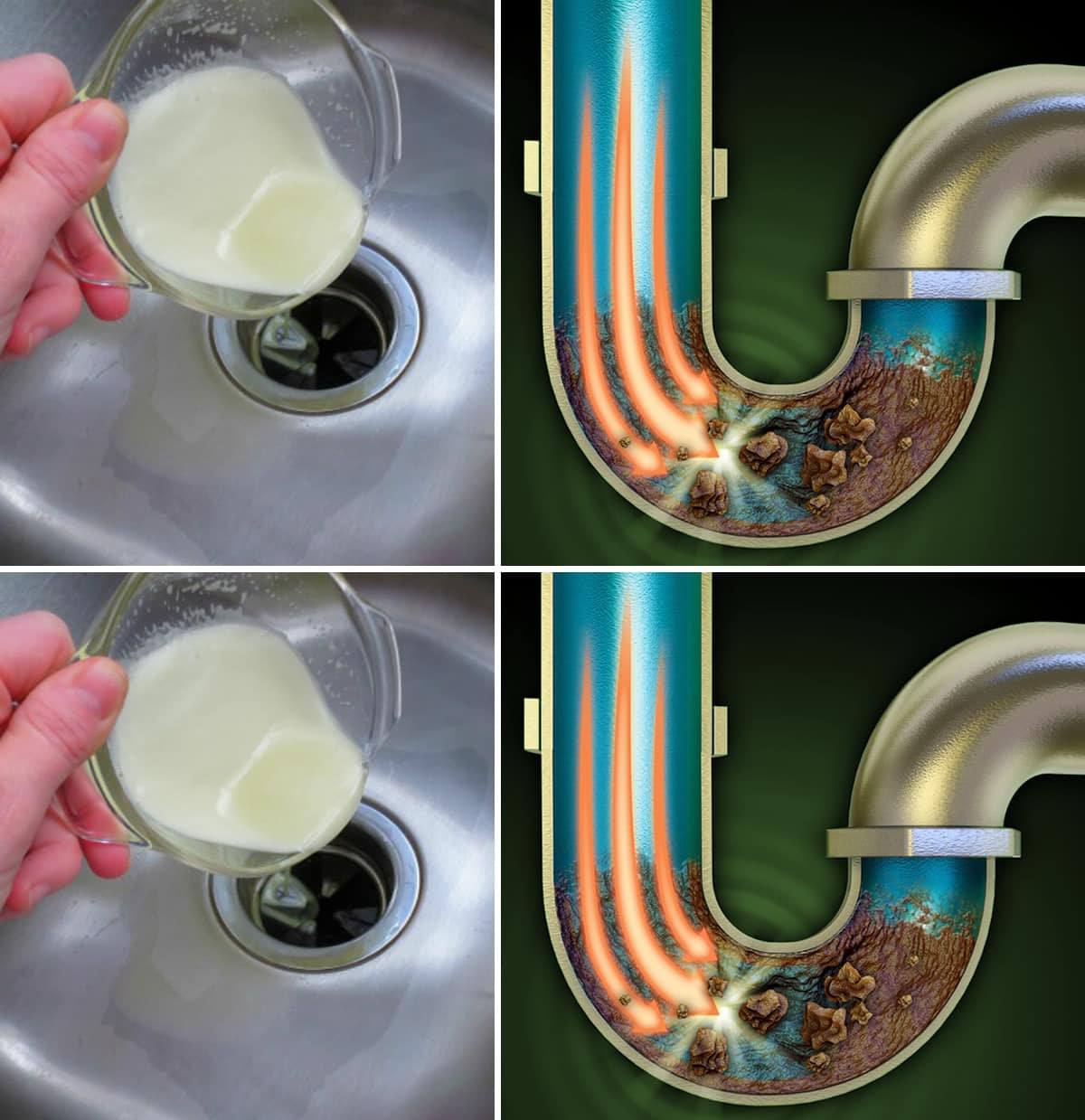Clogged drains are a common household issue that can lead to unpleasant odors and slow water drainage. While professional plumbing services are sometimes necessary, many minor clogs can be addressed with simple, natural remedies using common household items. These methods are not only cost-effective but also environmentally friendly, reducing the need for harsh chemicals.
Understanding Common Causes of Clogged Drains
Before delving into cleaning methods, it’s essential to understand what typically causes drain blockages:
- Accumulation of Grease and Fat: Pouring cooking oils and fats down the sink can lead to buildup inside pipes, eventually causing clogs.
- Hair and Soap Scum: In bathrooms, hair combined with soap residue can create stubborn blockages.
- Food Particles: Kitchen sinks often get clogged due to food scraps that escape down the drain.
- Mineral Buildup: Hard water can leave mineral deposits that accumulate over time, narrowing the pipes.
Natural Remedies to Unclog Drains
Several natural solutions can effectively clear minor clogs and maintain clean pipes:
- Baking Soda and VinegarThis classic combination creates a fizzing reaction that helps break down organic matter.
- Instructions:
- Pour 1/2 cup of baking soda down the clogged drain.
- Follow with 1/2 cup of white vinegar.
- Cover the drain and let the mixture sit for 15-30 minutes.
- Flush with boiling water to clear the loosened debris.
- Instructions:
- Salt and Baking SodaThe abrasive nature of salt combined with baking soda can help dislodge buildup.
- Instructions:
- Mix 1/2 cup of table salt with 1/2 cup of baking soda.
- Pour the mixture down the drain.
- Let it sit for at least 30 minutes (or overnight for tough clogs).
- Flush with boiling water.
- Instructions:
- Dish Soap and Hot WaterIdeal for grease clogs, dish soap helps dissolve greasy residues.
- Instructions:
- Pour a generous amount of dish soap down the drain.
- Follow with a pot of boiling water.
- Repeat if necessary.
- Instructions:
- Baking Soda and Lemon JuiceLemon juice’s acidity enhances the cleaning power of baking soda and leaves a fresh scent.
- Instructions:
- Pour 1/2 cup of baking soda down the drain.
- Follow with 1/2 cup of lemon juice.
- Let it sit for 30 minutes.
- Flush with boiling water.
- Instructions:
Preventative Measures
Regular maintenance can prevent clogs from forming:
- Hot Water Flushes: Pour boiling water down the drain weekly to dissolve grease and soap scum.
- Drain Screens: Use screens to catch hair and food particles before they enter the drain.
- Mindful Disposal: Avoid pouring grease, coffee grounds, and large food particles down the sink.
When to Call a Professional
If natural remedies don’t resolve the issue, or if you experience recurring clogs, it may be time to consult a plumber. Persistent problems could indicate more serious issues within your plumbing system.
By utilizing these natural cleaning methods and adopting preventative practices, you can maintain clear drains and reduce the need for professional interventions.

